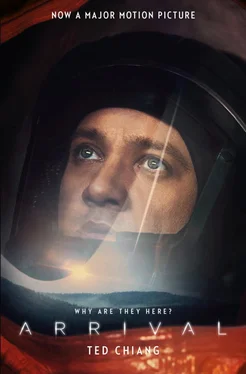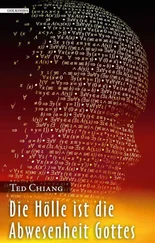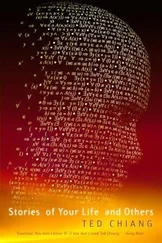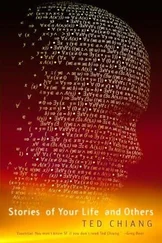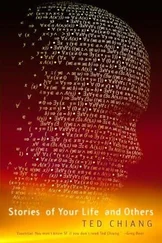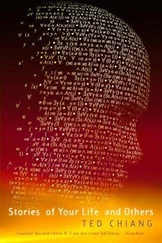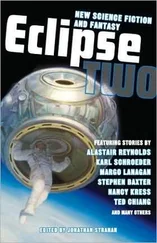‘I see your health amulet failed you, sir,’ said one man whose table was arrayed with small square tins. ‘Your remedy lies in the curative powers of magnetism, concentrated in Doctor Sedgewick’s Polarizing Tablets!’
‘Nonsense!’ retorted an old woman. ‘What you need is tincture of mandrake, tried and true!’ She held out a vial of clear liquid. ‘The dog wasn’t cold yet when this extract was prepared! There’s nothing more potent.’
Seeing no other new dolls, Stratton left the market and walked on, his thoughts returning to what Willoughby had said yesterday. Without the cooperation of the sculptors’ trade union, he’d have to resort to hiring independent sculptors. He hadn’t worked with such individuals before, and some investigation would be required: ostensibly they cast bodies only for use with public-domain names, but for certain individuals these activities disguised patent infringement and piracy, and any association with them could permanently blacken his reputation.
‘Mr. Stratton.’
Stratton looked up. A small, wiry man, plainly dressed, stood before him. ‘Yes; do I know you, sir?’
‘No, sir. My name is Davies. I’m in the employ of Lord Fieldhurst.’ He handed Stratton a card bearing the Fieldhurst crest.
Edward Maitland, third earl of Fieldhurst and a noted zoologist and comparative anatomist, was president of the Royal Society. Stratton had heard him speak during sessions of the Royal Society, but they had never been introduced. ‘What can I do for you?’
‘Lord Fieldhurst would like to speak with you, at your earliest convenience, regarding your recent work.’
Stratton wondered how the earl had learned of his work. ‘Why did you not call on me at my office?’
‘Lord Fieldhurst prefers privacy in this matter.’ Stratton raised his eyebrows, but Davies didn’t explain further. ‘Are you available this evening?’
It was an unusual invitation, but an honor nonetheless. ‘Certainly. Please inform Lord Fieldhurst that I would be delighted.’
‘A carriage will be outside your building at eight tonight.’
Davies touched his hat and was off.
At the promised hour, Davies arrived with the carriage. It was a luxurious vehicle, with an interior of lacquered mahogany and polished brass and brushed velvet. The tractor that drew it was an expensive one as well, a steed cast of bronze and needing no driver for familiar destinations.
Davies politely declined to answer any questions while they rode. He was obviously not a manservant, nor a secretary, but Stratton could not decide what sort of employee he was. The carriage carried them out of London into the countryside, until they reached Darrington Hall, one of the residences owned by the Fieldhurst lineage.
Once inside the home, Davies led Stratton through the foyer and then ushered him into an elegantly appointed study; he closed the doors without entering himself.
Seated at the desk within the study was a barrel-chested man wearing a silk coat and cravat; his broad, deeply creased cheeks were framed by woolly gray muttonchops. Stratton recognized him at once.
‘Lord Fieldhurst, it is an honor.’
‘A pleasure to meet you, Mr. Stratton. You’ve been doing some excellent work recently.’
‘You are most kind. I did not realize that my work had become known.’
‘I make an effort to keep track of such things. Please, tell me what motivated you to develop such automata.’
Stratton explained his plans for manufacturing affordable engines. Fieldhurst listened with interest, occasionally offering cogent suggestions.
‘It is an admirable goal,’ he said, nodding his approval. ‘I’m pleased to find that you have such philanthropic motives, because I would ask your assistance in a project I’m directing.’
‘It would be my privilege to help in any way I could.’
‘Thank you.’ Fieldhurst’s expression became solemn. ‘This is a matter of grave import. Before I speak further, I must first have your word that you will retain everything I reveal to you in the utmost confidence.’
Stratton met the earl’s gaze directly. ‘Upon my honor as a gentleman, sir, I shall not divulge anything you relate to me.’
‘Thank you, Mr. Stratton. Please come this way.’ Fieldhurst opened a door in the rear wall of the study and they walked down a short hallway. At the end of the hallway was a laboratory; a long, scrupulously clean worktable held a number of stations, each consisting of a microscope and an articulated brass framework of some sort, equipped with three mutually perpendicular knurled wheels for performing fine adjustments. An elderly man was peering into the microscope at the furthest station; he looked up from his work as they entered.
‘Mr. Stratton, I believe you know Dr. Ashbourne.’
Stratton, caught off guard, was momentarily speechless. Nicholas Ashbourne had been a lecturer at Trinity when Stratton was studying there, but had left years ago to pursue studies of, it was said, an unorthodox nature. Stratton remembered him as one of his most enthusiastic instructors. Age had narrowed his face somewhat, making his high forehead seem even higher, but his eyes were as bright and alert as ever. He walked over with the help of a carved ivory walking stick.
‘Stratton, good to see you again.’
‘And you, sir. I was truly not expecting to see you here.’
‘This will be an evening full of surprises, my boy. Prepare yourself.’ He turned to Fieldhurst. ‘Would you care to begin?’
They followed Fieldhurst to the far end of the laboratory, where he opened another door and led them down a flight of stairs. ‘Only a small number of individuals – either fellows of the Royal Society or members of Parliament, or both – are privy to this matter. Five years ago, I was contacted confidentially by the Académie des Sciences in Paris. They wished for English scientists to confirm certain experimental findings of theirs.’
‘Indeed?’
‘You can imagine their reluctance. However, they felt the matter outweighed national rivalries, and once I understood the situation, I agreed.’
The three of them descended to a cellar. Gas brackets along the walls provided illumination, revealing the cellar’s considerable size; its interior was punctuated by an array of stone pillars that rose to form groined vaults. The long cellar contained row upon row of stout wooden tables, each one supporting a tank roughly the size of a bathtub. The tanks were made of zinc and fitted with plate-glass windows on all four sides, revealing their contents as a clear, faintly straw-colored fluid.
Stratton looked at the nearest tank. There was a distortion floating in the center of the tank, as if some of the liquid had congealed into a mass of jelly. It was difficult to distinguish the mass’s features from the mottled shadows cast on the bottom of the tank, so he moved to another side of the tank and squatted down low to view the mass directly against a flame of a gas lamp. It was then that the coagulum resolved itself into the ghostly figure of a man, clear as aspic, curled up in foetal position.
‘Incredible,’ Stratton whispered.
‘We call it a megafoetus,’ explained Fieldhurst.
‘This was grown from a spermatozoon? This must have required decades.’
‘It did not, more’s the wonder. Several years ago, two Parisian naturalists named Dubuisson and Gille developed a method of inducing hypertrophic growth in a seminal foetus. The rapid infusion of nutrients allows such a foetus to reach this size within a fortnight.’
Читать дальше
